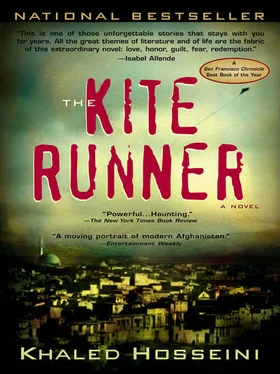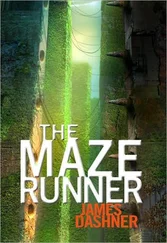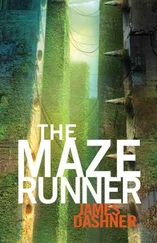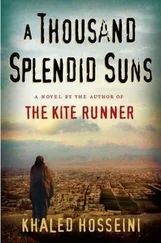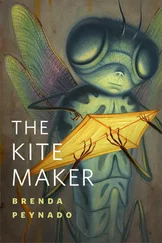I throw my makeshift jai-namaz , my prayer rug, on the floor and I get on my knees, lower my forehead to the ground, my tears soaking through the sheet. I bow to the west. Then I remember I haven’t prayed for over fifteen years. I have long forgotten the words. But it doesn’t matter, I will utter those few words I still remember: La illaha il Allah, Muhammad u rasul ullah . There is no God but Allah and Muhammad is His messenger. I see now that Baba was wrong, there is a God, there always had been. I see Him here, in the eyes of the people in this corridor of desperation. This is the real house of God, this is where those who have lost God will find Him, not the white masjid with its bright diamond lights and towering minarets. There is a God, there has to be, and now I will pray, I will pray that He forgive that I have neglected Him all of these years, forgive that I have betrayed, lied, and sinned with impunity only to turn to Him now in my hour of need, I pray that He is as merciful, benevolent, and gracious as His book says He is. I bow to the west and kiss the ground and promise that I will do zakat , I will do namaz , I will fast during Ramadan and when Ramadan has passed I will go on fasting, I will commit to memory every last word of His holy book, and I will set on a pilgrimage to that sweltering city in the desert and bow before the Ka’bah too. I will do all of this and I will think of Him every day from this day on if He only grants me this one wish: My hands are stained with Hassan’s blood; I pray God doesn’t let them get stained with the blood of his boy too.
I hear a whimpering and realize it is mine, my lips are salty with the tears trickling down my face. I feel the eyes of everyone in this corridor on me and still I bow to the west. I pray. I pray that my sins have not caught up with me the way I’d always feared they would.
A STARLESS, BLACK NIGHT falls over Islamabad. It’s a few hours later and I am sitting now on the floor of a tiny lounge off the corridor that leads to the emergency ward. Before me is a dull brown coffee table cluttered with newspapers and dog-eared magazines – an April 1996 issue of Time; a Pakistani newspaper showing the face of a young boy who was hit and killed by a train the week before; an entertainment magazine with smiling Lollywood actors on its glossy cover. There is an old woman wearing a jade green shalwar-kameez and a crocheted shawl nodding off in a wheelchair across from me. Every once in a while, she stirs awake and mutters a prayer in Arabic. I wonder tiredly whose prayers will be heard tonight, hers or mine. I picture Sohrab’s face, the pointed meaty chin, his small seashell ears, his slanting bamboo-leaf eyes so much like his father’s. A sorrow as black as the night outside invades me, and I feel my throat clamping.
I need air.
I get up and open the windows. The air coming through the screen is musty and hot – it smells of overripe dates and dung. I force it into my lungs in big heaps, but it doesn’t clear the clamping feeling in my chest. I drop back on the floor. I pick up the Time magazine and flip through the pages. But I can’t read, can’t focus on anything. So I toss it on the table and go back to staring at the zigzagging pattern of the cracks on the cement floor, at the cobwebs on the ceiling where the walls meet, at the dead flies littering the windowsill. Mostly, I stare at the clock on the wall. It’s just past 4 A.M. and I have been shut out of the room with the swinging double doors for over five hours now. I still haven’t heard any news.
The floor beneath me begins to feel like part of my body, and my breathing is growing heavier, slower. I want to sleep, shut my eyes and lie my head down on this cold, dusty floor. Drift off. When I wake up, maybe I will discover that everything I saw in the hotel bathroom was part of a dream: the water drops dripping from the faucet and landing with a plink into the bloody bathwater; the left arm dangling over the side of the tub, the blood-soaked razor sitting on the toilet tank – the same razor I had shaved with the day before – and his eyes, still half open but lightless. That more than anything. I want to forget the eyes.
Soon, sleep comes and I let it take me. I dream of things I can’t remember later.
SOMEONE IS TAPPING ME on the shoulder. I open my eyes. There is a man kneeling beside me. He is wearing a cap like the men behind the swinging double doors and a paper surgical mask over his mouth – my heart sinks when I see a drop of blood on the mask. He has taped a picture of a doe-eyed little girl to his beeper. He unsnaps his mask and I’m glad I don’t have to look at Sohrab’s blood anymore. His skin is dark like the imported Swiss chocolate Hassan and I used to buy from the bazaar in Shar-e-Nau; he has thinning hair and hazel eyes topped with curved eyelashes. In a British accent, he tells me his name is Dr. Nawaz, and suddenly I want to be away from this man, because I don’t think I can bear to hear what he has come to tell me. He says the boy had cut himself deeply and had lost a great deal of blood and my mouth begins to mutter that prayer again:
La illaha il Allah, Muhammad u rasul ullah.
They had to transfuse several units of red cells -
How will I tell Soraya?
Twice, they had to revive him -
I will do namaz, I will do zakat.
They would have lost him if his heart hadn’t been young and strong -
I will fast.
He is alive.
Dr. Nawaz smiles. It takes me a moment to register what he has just said. Then he says more but I don’t hear him. Because I have taken his hands and I have brought them up to my face. I weep my relief into this stranger’s small, meaty hands and he says nothing now. He waits.
THE INTENSIVE CARE UNIT is L -shaped and dim, a jumble of bleeping monitors and whirring machines. Dr. Nawaz leads me between two rows of beds separated by white plastic curtains. Sohrab’s bed is the last one around the corner, the one nearest the nurses’ station where two nurses in green surgical scrubs are jotting notes on clipboards, chatting in low voices. On the silent ride up the elevator with Dr. Nawaz, I had thought I’d weep again when I saw Sohrab. But when I sit on the chair at the foot of his bed, looking at his white face through the tangle of gleaming plastic tubes and IV lines, I am dry-eyed. Watching his chest rise and fall to the rhythm of the hissing ventilator, a curious numbness washes over me, the same numbness a man might feel seconds after he has swerved his car and barely avoided a head-on collision.
I doze off, and, when I wake up, I see the sun rising in a buttermilk sky through the window next to the nurses’ station. The light slants into the room, aims my shadow toward Sohrab. He hasn’t moved.
“You’d do well to get some sleep,” a nurse says to me. I don’t recognize her – there must have been a shift change while I’d napped. She takes me to another lounge, this one just outside the ICU. It’s empty. She hands me a pillow and a hospital-issue blanket. I thank her and lie on the vinyl sofa in the corner of the lounge. I fall asleep almost immediately.
I dream I am back in the lounge downstairs. Dr. Nawaz walks in and I rise to meet him. He takes off his paper mask, his hands suddenly whiter than I remembered, his nails manicured, he has neatly parted hair, and I see he is not Dr. Nawaz at all but Raymond Andrews, the little embassy man with the potted tomatoes. Andrews cocks his head. Narrows his eyes.
IN THE DAYTIME, the hospital was a maze of teeming, angled hallways, a blur of blazing-white overhead fluorescence. I came to know its layout, came to know that the fourth-floor button in the east wing elevator didn’t light up, that the door to the men’s room on that same floor was jammed and you had to ram your shoulder into it to open it. I came to know that hospital life has a rhythm, the flurry of activity just before the morning shift change, the midday hustle, the stillness and quiet of the late-night hours interrupted occasionally by a blur of doctors and nurses rushing to revive someone. I kept vigil at Sohrab’s bedside in the daytime and wandered through the hospital’s serpentine corridors at night, listening to my shoe heels clicking on the tiles, thinking of what I would say to Sohrab when he woke up. I’d end up back in the ICU, by the whooshing ventilator beside his bed, and I’d be no closer to knowing.
Читать дальше
